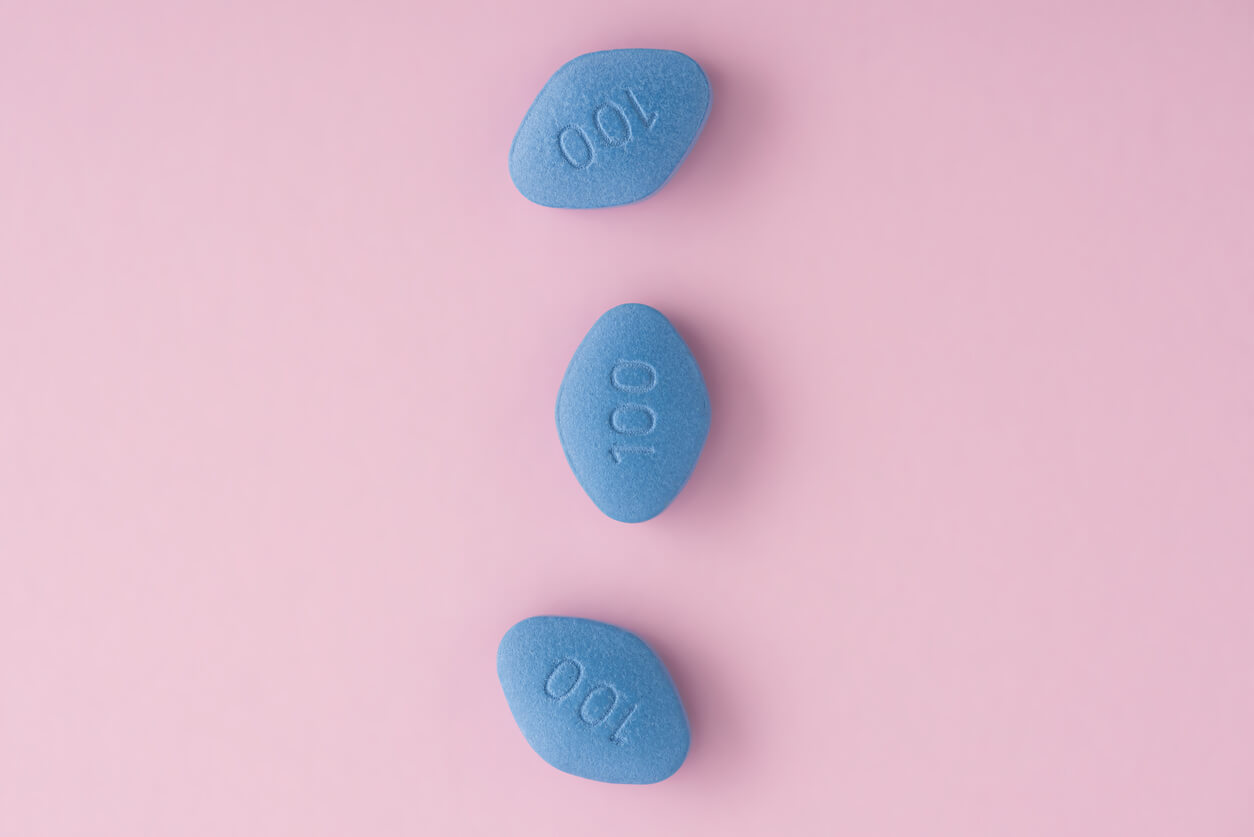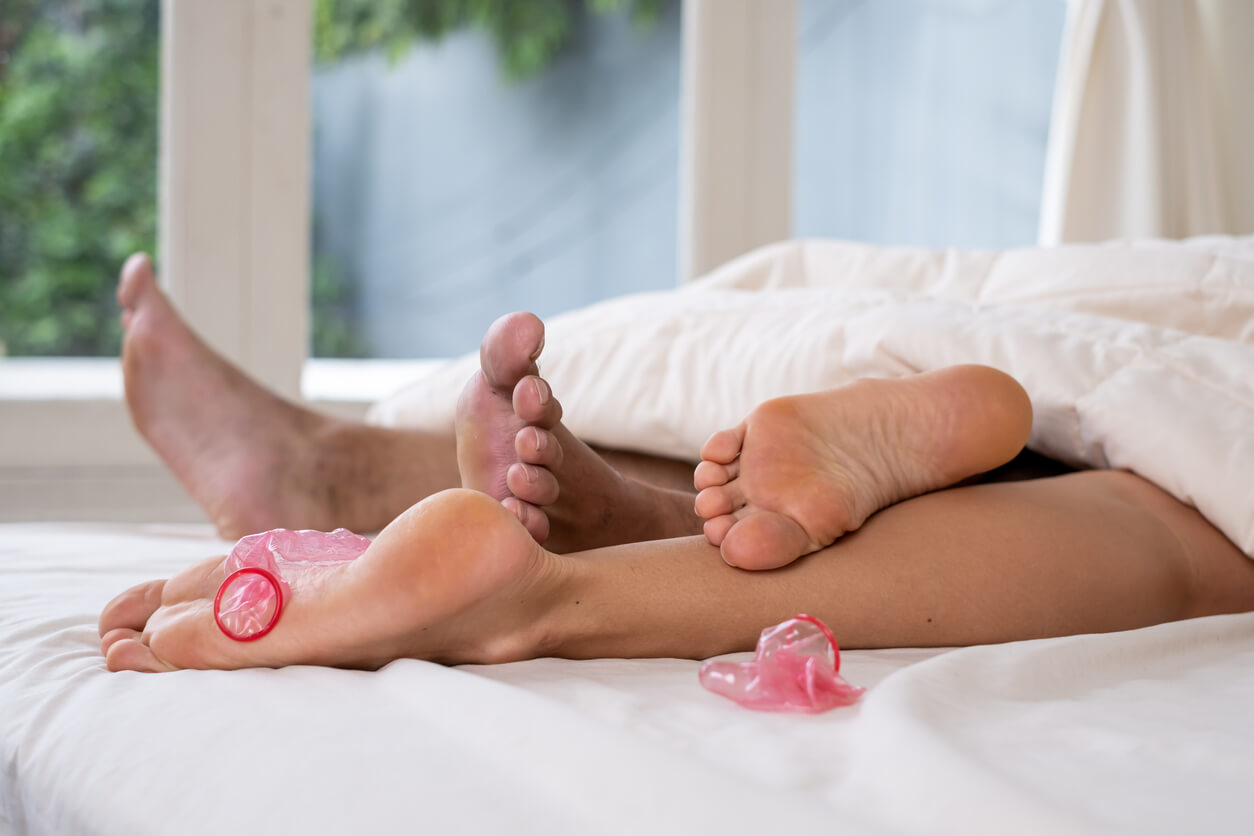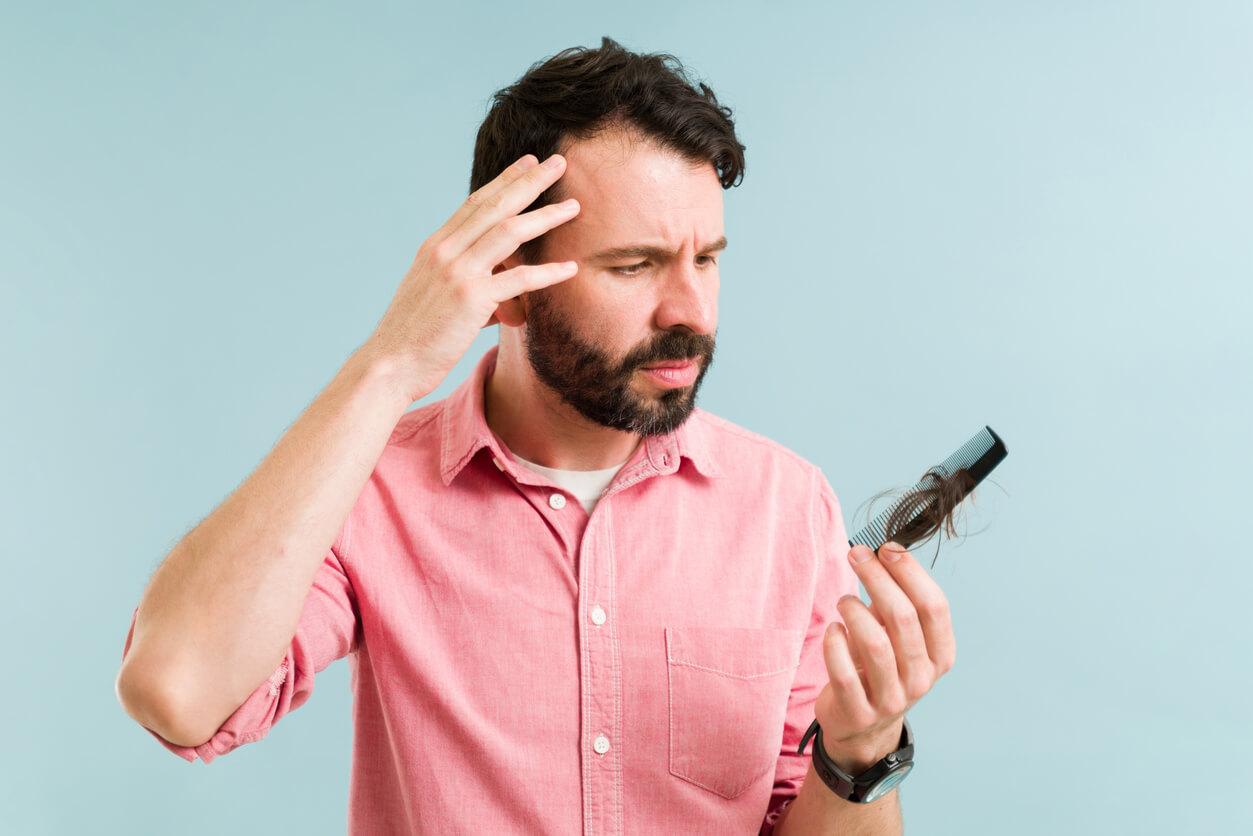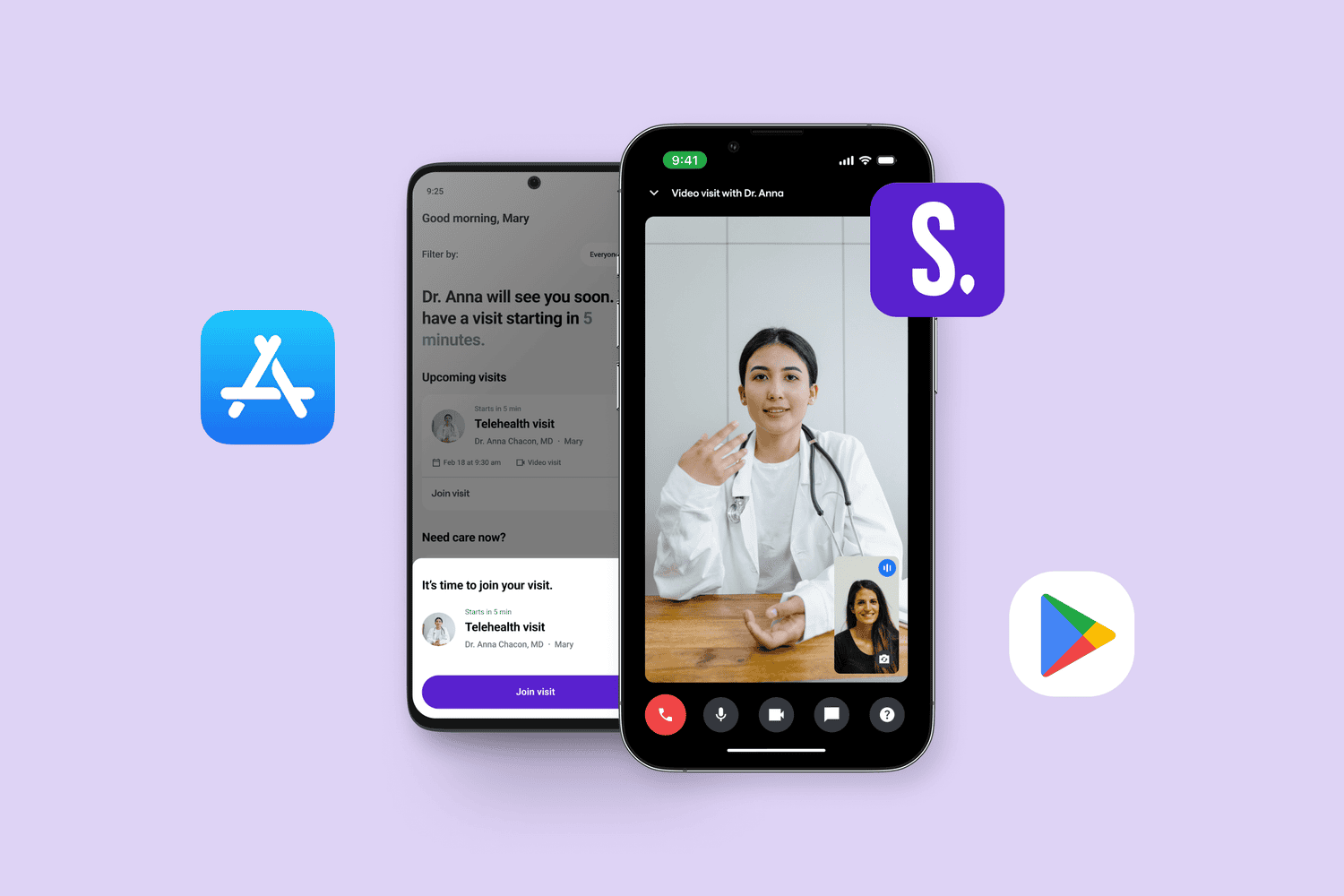Erectile Dysfunction: Causes, Symptoms, and Treatment
Learn more about erectile dysfunction, including common causes and treatment options
We need to talk about ED. Many men feel embarrassed bringing it up to their partner or healthcare provider. Erectile dysfunction is a particularly tricky men’s health topic. It is common to have some difficulty getting or maintaining an erection. Still, it’s important to understand the basics of this condition. It is a common sign of other underlying health problems.
So how do you know if you just had an off-night or ED? Let’s take a look at some common causes and symptoms of erectile dysfunction.
Erectile dysfunction basics
The National Institutes of Diabetes and Digestive and Kidney Diseases (NIDDK) defines ED as “...a condition in which you are unable to get or keep an erection firm enough for satisfactory sexual intercourse.” It’s completely normal to have difficulty getting or maintaining an erection from time to time. However, if you keep having trouble getting an erection, you may have erectile dysfunction.
Erectile dysfunction affects about 18 million American men over the age of 20. It gets more common in older men. It affects about 5.1% of men between 20-39 and 14.8% of men between 40-59. From here, the prevalence spikes: 43.8% of men between 60-69 deal with ED, as do more than 70% of men over 70.
Ongoing erection problems can be embarrassing. They can impact the sexual health of your relationship. They can lead to mental health conditions like performance anxiety. This only serves to make the condition worse. ED can also be a sign that you are dealing with an underlying medical condition that needs to be addressed. Because of this, you should talk to your provider right away if you repeatedly have difficulty getting an erection hard enough for sex.
Causes of erectile dysfunction
The common causes of ED are wide-ranging and diverse. Sexual arousal involves the brain, blood flow, hormones, muscles, and more. If any one of these areas is affected, it can impair your sexual performance.
Common physical causes of ED include:
- Age
- High blood pressure (hypertension)
- Cardiovascular disease like atherosclerosis
- Heart disease
- High cholesterol
- Diabetes
- Overweight or obesity
- Parkinson’s disease
- Multiple sclerosis
- Peyronie’s disease
- Spinal cord injury
- Nervous system injury
- Prostate cancer
- Low testosterone
- Excessive tobacco or alcohol use
Many of these underlying causes affect the blood vessels and the blood flow to the penis. Narrowed blood vessels or injury to the body may prevent blood from getting to the penis during sexual activity. As a result, the penis cannot get erect enough for sex. Vascular ED—ED caused by a lack of proper blood flow—is the most common form of ED.
We all know that an erection requires more than just blood flow. There is a mental and emotional side to sexual function that cannot be overlooked.
Common psychological causes of ED include:
- Depression or other mental health problems
- Low self-esteem
- Performance anxiety
- Relationship problems
Erectile dysfunction caused by mental health issues may require counseling or therapy for adequate treatment.
Medication and erectile dysfunction
In addition to the physical and psychological causes listed above, many medications have been linked to erectile dysfunction or decreased sexual desire. Sexual dysfunction is often a side effect of these drugs. If you notice sexual performance problems while taking a new medication, talk to your healthcare provider right away.
Medications linked to ED include:
- High blood pressure medications
- Antidepressants
- Anti-anxiety medication
- Antihistamines
- Medication to treat prostate conditions
- Antiarrhythmics
- Chemotherapy agents
- Muscle relaxers
- Anticholinergics
- Hormone supplements
- Opioid painkillers
Tell your provider if you experience ED while taking any of these medications. You should also tell them if you take any of these drugs before starting treatment for erectile dysfunction.
Symptoms of erectile dysfunction
Not getting an erection firm enough for sex happens every now and then. If this happens more often, it may be considered erectile dysfunction.
Trouble getting or keeping an erection is the hallmark of ED. Some men may have a tough time getting an erection at all despite being sexually aroused. Some may be able to achieve an erection but can’t keep it during sexual intercourse.
ED can also cause some mental symptoms. A man dealing with ED may have a decreased desire for sex (low libido). Sexual dysfunction can also cause depression, anxiety, and low self-esteem.
When to see a doctor
An odd “off-night” can be expected occasionally. If you repeatedly have difficulty getting or keeping an erection, however, it may be time to see a urologist. Similarly, if erectile dysfunction is affecting your relationships, you should speak to a healthcare provider for diagnosis and treatment.
Getting treatment for ED can help get your sex life back on track. What’s more, ED can be a warning sign for other underlying health conditions. Getting medical attention for erectile dysfunction improves your chances of catching more sinister problems unrelated to sexual performance.
Do not feel embarrassed about bringing up erectile dysfunction to your primary care provider. It’s a prevalent condition that affects millions of men. Getting help and treatment will help you improve your sexual performance. It will also help you determine if any underlying causes are to blame.
ED Diagnosis
Your provider will examine your medical history before diagnosing ED. They will also likely conduct a physical exam of the penis and testicles. In addition, your nerves may be checked to test for sensation.
Your healthcare provider may order blood tests or urine analysis (urinalysis) lab work. They do this based on your health history and condition. These screening tests check for underlying causes of ED, such as diabetes, high blood pressure, and low testosterone. Results usually take 24-48 hours. Your provider will get in touch to discuss these with you.
You also may be asked about your sex life and your mental health. Your provider might ask you some questions to perform a light psychological exam. They want to determine if depression or some other mental health issue is causing your erectile dysfunction.
Treatment for ED will depend on what your provider has deemed to be the underlying cause of the condition. After performing a physical and mental exam, they will discuss potential treatment options with you.
Erectile dysfunction treatment
Treatment for ED varies depending on what is causing the issue. Your provider will explain the risks and benefits of any treatment option. They may ask about the treatment route you and your partner prefer. They can consider this when making a prescription.
Lifestyle changes
In many cases, healthy lifestyle changes are the first order of treatment for ED. Common lifestyle interventions include:
Exercise more: Exercise improves blood flow. Narrowed blood vessels are one of the most common underlying causes of ED. Cardiovascular exercise opens these passages up and helps encourage increased blood flow to the penis. Physical activity has also been linked to a lower risk of depression and reduced stress. More exercise can improve your vascular function (blood flow) and mental health. Therefore, it is one of the primary treatment options for ED.
Eat a healthy diet: A diet high in fat, cholesterol, and processed foods can impair blood flow. This can make it hard to get a firm enough erection. There may also be a link between high cholesterol and lower testosterone levels. However, more research is needed to validate this idea fully. In all, prioritizing whole foods, like fruits, vegetables, and whole grains, can improve your heart function. It can also improve your sexual health. Many of these foods also contribute to elevated testosterone levels, which also helps with sexual function.
Curb your substance use: Smoking and drinking narrow blood vessels, making it hard to achieve an erection. Cutting down on or quitting these behaviors altogether can improve blood flow to the penis, which positively impacts sexual performance.
Seek counseling: Erectile dysfunction caused by depression or other mental health issues can usually be treated with mental health care. Therapy or counseling can help you interrogate the underlying psychological causes of ED. It also allows you to work through any relationship or intimacy problems. Ask your primary care provider about the form of mental health care that’s right for you and whether or not additional treatment is required.
Prescription medications
If lifestyle interventions fail to treat the condition, your provider may prescribe medication.
PDE5 Inhibitors: The most common type of medication used to treat erectile dysfunction are PDE5 inhibitors. PDE5 inhibitors work by blocking an enzyme called PDE5. PDE5 breaks down a chemical needed for erections. Blocking PDE5 allows more of this chemical to stay in the body, helping patients achieve and maintain erections. PDE5 inhibitors widen blood vessels, improving blood flow and oxygenating organs and tissues. They also regulate blood pressure.
The most common PDE5 inhibitors include:
These drugs all work similarly. They differ in how long it takes before the medication’s effects kick in and how long they last. Talk to your provider about these options and the PDE5 inhibitor that’s right for you.
Alprostadil: Alprostadil is a type of medication called a vasodilator. It relaxes blood vessels in the penis, increasing blood flow for an erection. It mimics a natural hormone, prostaglandin E1, which widens arteries and veins. Alprostadil also boosts nitric oxide levels. This improves blood circulation and smooth muscle relaxation, improving erectile function.
Alprostadil is available as a urethral suppository and injectable liquid. Urethral suppositories are inserted into the urethra after urination. The pellet should be applied 10-30 minutes before intercourse. The pellet dissolves in leftover urine. This sends the vasodilator medication into the blood.
Alprostadil injections are self-applied with instructions from your healthcare provider. It should be applied 10-30 minutes before intercourse. Don’t use this medication more than three times a week.
If lifestyle changes and medication do not adequately treat the condition, talk to your provider about other treatment options.
How Sesame can help
Book an online doctor's appointment on Sesame today if you want to talk to a provider about ED or ED treatment. These discreet and convenient appointments offer an opportunity to address your concerns and discuss potential treatment options for your condition.









